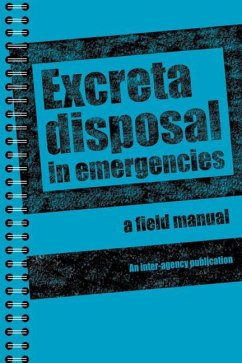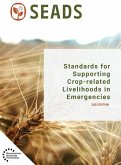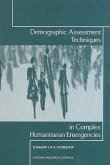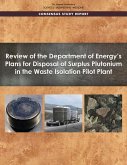It is generally accepted that excreta disposal is given less priority in emergencies than other humanitarian interventions such as health care, food and water supply. This is despite the fact that many of the most common diseases occuring in emergency situations are caused by inadequate sanitation facilities and poor hygeine practice. Many aid agencies are aware of these facts and wish to give greater emphasis to excreta disposal. In the past, however, they have often been hampered by a lack of experience and resources to support their field staff. This manual is designed for use by field-based technicians, engineers and non-technical staff responsible for sanitation planning, management and intervention in emergencies. This may include international personnel sent to an emergency, local, national and regional staff.
Hinweis: Dieser Artikel kann nur an eine deutsche Lieferadresse ausgeliefert werden.
Hinweis: Dieser Artikel kann nur an eine deutsche Lieferadresse ausgeliefert werden.








